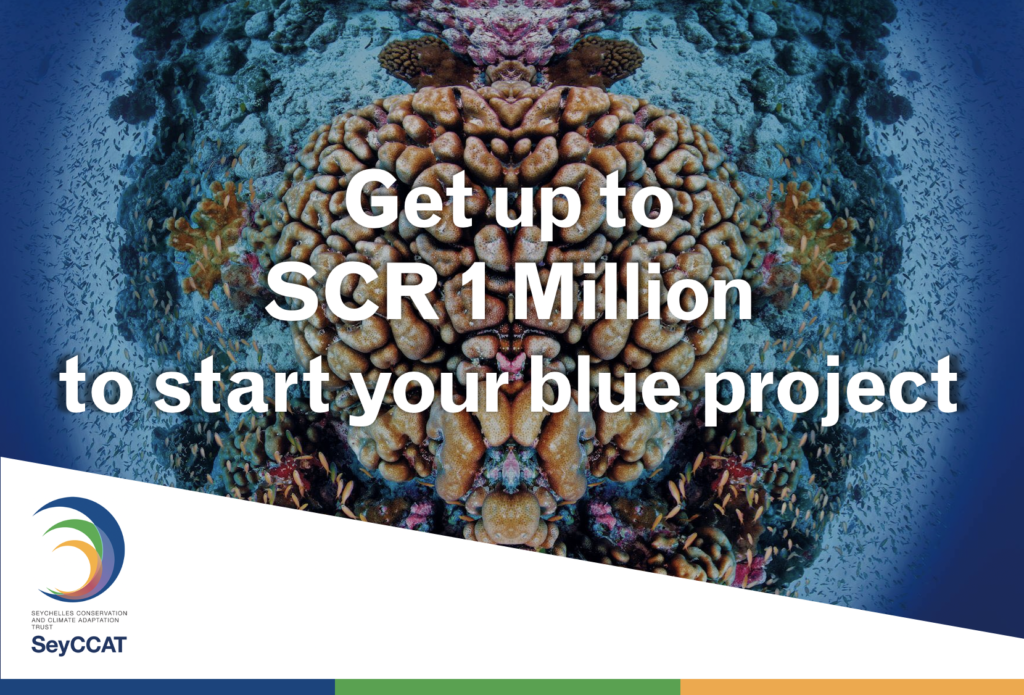
How to Apply
Blue Grants Fund #4 opens on the 6th of July
Find out what types of projects are elibigle for funding this year: English version or Creole version
A step-by-step guide to the Blue Grants Fund
Step 1: Are you eligible? Find out what we cannot finance in the Exclusion List
Please use the standard application template for your application to be accepted.
Step 2: Whether you are applying for a small-medium or a large grant, submit a concept note and an itemised budget
You can apply in Creole! SeyCCAT-Concept Note (Creole)
You can submit using SeyCCAT’s online platform OR submit the Microsoft Word file of the Concept Note
Step 3: Make sure you have prepared all the documents
You must submit all the documents, you can also attach them on the online platform:
- The Concept Note
- Simple Budget for the application using the SeyCCAT template (required for online platform)
- SeyCCAT-itemised-Budget using the SeyCCAT Template
- Relevant attachments
Deadline to submit your application is August 14, 2020, 5 PM
Need help with the application?
Here are the resources we provide to help prepare your application:
- Regional crash courses on how to prepare your project application.
- Blue Finance How to Apply Manual
- Application Guidelines for Award force for registration and completing the form using the online system.
- Need an example of how to complete the application form, see our SeyCCAT Concept Note Specimen
- Think of monitoring and evaluation from the design phase, here are some M&E- Top Tips to ensure you deliver impact.
- We support research and development for businesses, here is our Research and Development guide for SeyCCAT FINAL
- We want to foster meaningful partnerships, here is the recommended template for a letter of support, see Template for Support Letter
- Have you been asked to provided an environmental and social management plan? See FBOA-ESMP_24022020 . (We will inform you if you require this).
a
- Application Guidelines for Award force for registration and completing the form using the online system.
- Need an example of how to complete the application form, see our SeyCCAT Concept Note Specimen
- Think of monitoring and evaluation from the design phase, here are some M&E- Top Tips to ensure you deliver impact.
- We support research and development for businesses, here is our Research and Development guide for SeyCCAT FINAL
- We want to foster meaningful partnerships, here is the recommended template for a letter of support, see Template for Support Letter
- Have you been asked to provided an environmental and social management plan? See FBOA-ESMP_24022020 . (We will inform you if you require this).


